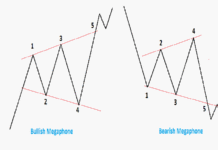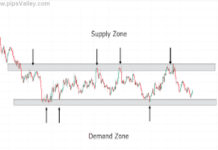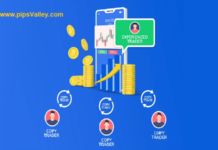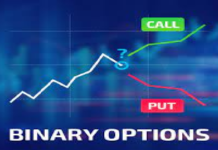
The world of foreign exchange (forex) trading has experienced a significant transformation with the advent of digital technologies. Among the innovations that have reshaped the landscape, e-wallets have emerged as a secure and convenient means of conducting financial transactions in the forex market. This article explores how e-wallets have revolutionized forex trading, providing traders with a seamless and efficient platform to manage their funds while navigating the challenges of the digital age.
The Rise of E-Wallets in Forex Trading
-
Definition and Explanation of E-Wallets:
E-wallets, also known as digital wallets, are electronic payment systems that allow users to store and manage their financial information securely. These wallets can be accessed through mobile applications or web-based platforms, providing a convenient way to make online transactions, including forex trading.
-
Growing Popularity in the Financial Market:
E-wallets have gained immense popularity in recent years due to their user-friendly interfaces, fast processing times, and enhanced security features. In the forex market, traders are increasingly adopting e-wallets as a preferred method for depositing funds, making withdrawals, and managing their trading capital.
-
Key Features and Advantages:
E-wallets offer several key features that make them attractive for forex trading. These features include instant deposits and withdrawals, global accessibility, seamless integration with trading platforms, and multi-currency support. Additionally, e-wallets often come with built-in security measures such as multi-factor authentication (MFA) and encryption to protect user funds and data.
Enhanced Security Measures
- Multi-Factor Authentication (MFA) for Login:
E-wallets prioritize security by implementing multi-factor authentication (MFA) during the login process. This involves requiring users to provide additional verification methods, such as a one-time password (OTP) sent to their registered mobile number or email, in addition to their regular login credentials. MFA helps prevent unauthorized access to the e-wallet account.
- Encryption and Data Protection:
E-wallets use encryption protocols to safeguard user data and financial information. This ensures that sensitive data, such as credit card details or personal identification, remains encrypted and protected from potential cyber threats or data breaches.
- Fraud Prevention and Risk Mitigation:
E-wallet providers often employ robust fraud prevention mechanisms to identify and prevent suspicious activities. These measures help protect traders from potential financial losses resulting from fraudulent transactions or unauthorized access to their accounts.
Seamless Fund Management
-
Instant Deposits and Withdrawals:
One of the key advantages of e-wallets in forex trading is the ability to make instant deposits and withdrawals. Traders can quickly fund their trading accounts and access their profits without delays, ensuring smooth and efficient fund management.
-
Accessibility and Global Reach:
E-wallets offer global accessibility, allowing traders from different regions to participate in forex trading. They eliminate the need for traditional banking systems, making it easier for international traders to engage in currency exchanges.
-
Integration with Multiple Payment Options:
E-wallets can be linked to various funding sources, such as credit cards, debit cards, bank accounts, and even cryptocurrencies. This integration provides traders with the flexibility to choose their preferred payment method for depositing or withdrawing funds.
Cost-Effectiveness and Transparency
-
Lower Transaction Fees:
E-wallets often come with lower transaction fees compared to traditional payment methods. This cost-effectiveness can significantly benefit forex traders, especially those involved in frequent transactions.
-
Transparent Pricing and Exchange Rates:
E-wallets typically offer transparent pricing and exchange rates, ensuring that traders are aware of the fees and conversion rates applied to their transactions. This transparency allows for better financial planning and budgeting.
-
Clear Record-Keeping and Transaction History:
E-wallets maintain detailed transaction histories, providing traders with a clear record of all their financial activities. This feature assists traders in tracking their expenses and analyzing their trading patterns.
Accessibility and Convenience for Traders
-
Mobile Applications and Cross-Device Functionality:
E-wallets often offer mobile applications compatible with various devices, making it convenient for traders to manage their accounts on the go. Cross-device functionality ensures a seamless experience across smartphones, tablets, and computers.
-
Integration with Trading Platforms:
Many forex trading platforms and brokers now support e-wallets as a payment option, simplifying the process of depositing and withdrawing funds directly from the trading interface.
-
Real-Time Notifications and Alerts:
E-wallets provide real-time notifications and alerts for important activities, such as successful transactions, account balance updates, or potential security concerns. These alerts help traders stay informed and respond promptly to any account-related changes.
E-Wallets and Regulation in Forex Trading
-
Compliance with Financial Authorities:
Reputable e-wallet providers adhere to strict regulatory guidelines set by financial authorities to ensure compliance with anti-money laundering (AML) laws and other financial regulations.
-
Anti-Money Laundering (AML) Measures:
E-wallets implement AML measures to detect and prevent money laundering activities, helping to maintain the integrity of the forex market.
-
User Verification and KYC (Know Your Customer) Procedures:
E-wallet providers often require users to undergo a thorough verification process, known as Know Your Customer (KYC), to verify their identity and prevent fraudulent use of the platform.
Potential Challenges and Risks
-
Cybersecurity Threats and Hacking Risks:
As with any digital platform, e-wallets may be susceptible to cybersecurity threats and hacking attempts. Traders must remain vigilant and employ security best practices to protect their accounts.
-
Exchange Rate Volatility:
Forex trading inherently involves exchange rate fluctuations, and while e-wallets provide transparent rates, traders should be aware of potential volatility that may impact their transactions.
-
Regulatory Changes and Compliance Updates:
Forex trading regulations and e-wallet policies may evolve over time. Traders should stay informed about any regulatory changes that could affect their use of e-wallets for forex trading.
Future Prospects of E-Wallets in Forex Trading
-
Continued Technological Advancements:
Electronic wallets are likely to benefit from ongoing technological advancements, leading to even more sophisticated features and enhanced security measures.
-
Increased Adoption and Market Penetration:
As the global financial landscape becomes increasingly digital, the adoption of e-wallets in forex trading is expected to continue growing, attracting more traders to this convenient payment method.
-
Integration with Decentralized Finance (DeFi) and Cryptocurrencies:
Electronic wallets may explore integration with decentralized finance (DeFi) platforms and cryptocurrencies, offering traders more diverse options for managing their funds.
Conclusion:
E-wallets have transformed the forex trading landscape by providing traders with a secure and convenient platform to manage their funds effectively. With enhanced security measures, seamless fund management, and cost-effectiveness, e-wallets offer a compelling solution for traders seeking a modern and efficient approach to financial transactions in the digital age. However, it is essential for traders to remain vigilant about potential risks and adhere to regulatory guidelines to ensure a successful and sustainable forex trading experience with e-wallets. As the fintech industry continues to evolve, e-wallets are likely to play an even more significant role in shaping the future of forex trading. Here is few popular E-wallets info-
Related Post:
Swap-Free Trading Account Launched to Cater to Islamic Traders



























